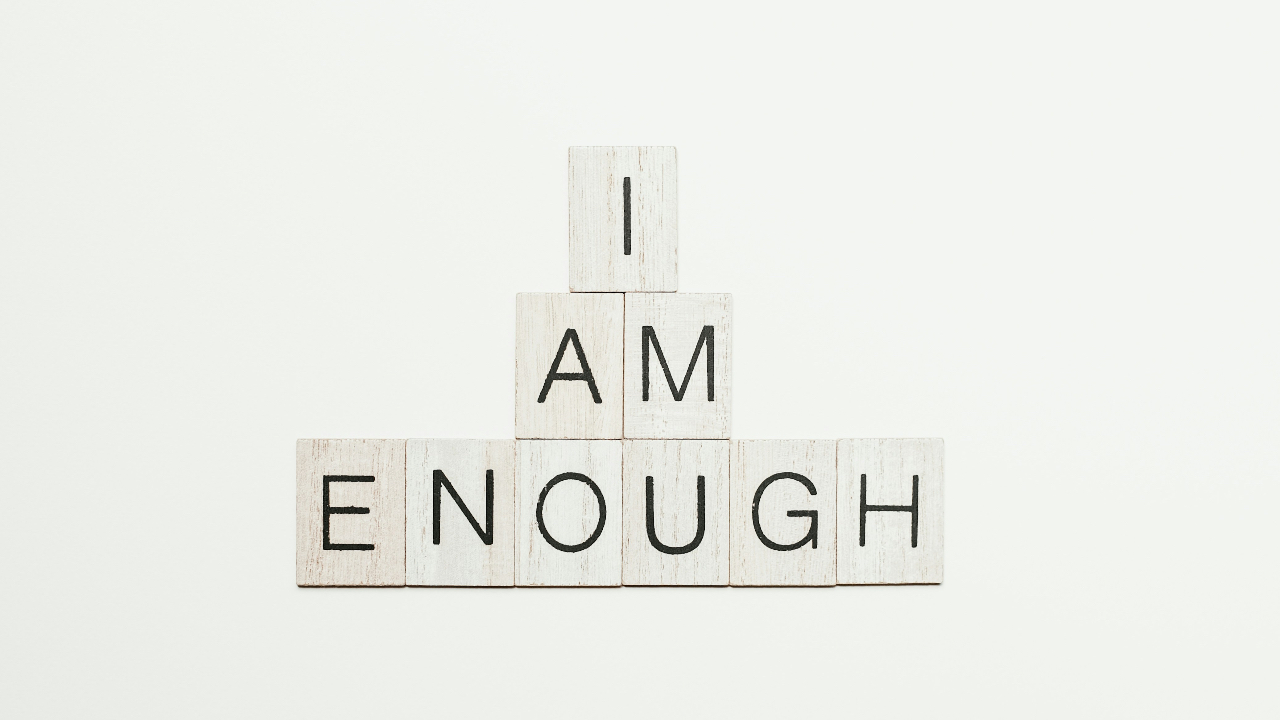Living in the Gap: Shifting Self-Perception and Embracing Your Worth
Nov 22, 2024
Do you ever feel like there’s a massive gap between how you see yourself and how others see you? You might notice every little mistake, imperfection, and way you think you’re falling short—while the people around you focus on your strengths, creativity, and the good you bring into the world. For many of us with ADHD, especially those diagnosed later in life, this disconnect can feel overwhelming.
Over the years, you probably have hidden parts of yourself (knowingly and unknowingly)—masking your quirks, downplaying your struggles, and trying to meet expectations that never truly felt natural. It’s no wonder that after years of this, you start to believe that maybe you just aren’t enough.
But here’s the truth: while you’re busy picking apart your flaws, others might see something completely different. They notice your ability to light up a room, your resilience, and the way you care deeply for the people in your life. The gap between how we view ourselves and how others see us is real, but it doesn’t have to stay that way.
Living in the Gap
I remember a moment when this hit me like a ton of bricks. I was sitting in a meeting, panicked because I’d forgotten my notes. In my mind, I was a complete mess—unprepared, scattered, barely holding it together. I was convinced everyone else saw the disaster I felt I was.
But afterward, a coworker came up to me and said, “You’re so quick on your feet. I wish I could think like you do under pressure.”
I was stunned. While I’d been tearing myself apart for what I thought was a failure, someone else saw confidence, adaptability, and grace under pressure. It made me wonder: What else am I missing about myself? What strengths am I overlooking because I’m too focused on my flaws?
This is the reality of living in the gap—the space where your perception of yourself and how others see you doesn’t align. It’s a dissonance that can feel isolating, even painful, because when you spend so much time feeling misunderstood, it’s easy to believe that maybe you’re the problem. But the truth is, others often see the best in us, even when we can’t see it in ourselves.
The Weight of Self-Perception
For those of us diagnosed later in life, self-perception often carries the weight of years of criticism—both from others and from ourselves. Maybe you had teachers who said you weren’t living up to your potential, bosses who grew frustrated with missed deadlines, or friends who labeled you “flaky.” Those words don’t just disappear. They settle in, becoming part of the inner narrative that shapes how we see ourselves.
Over time, we internalize those criticisms, replaying them until they feel like undeniable truths. Even when someone compliments your creativity or admires the way you think outside the box, it can feel impossible to believe. Instead, self-doubt creeps in, whispering, “They’re just being nice. They don’t really mean it.”
But here’s the thing: those critical voices—whether they came from others in your past or from within—don’t define you. They’re echoes of misunderstanding, not reflections of your worth. It’s not easy to quiet that static, but it’s possible. Start by asking yourself, “What if they’re right? What if I’m not just my flaws? What if I really do have something special to offer?”
How Others See You
While you’re busy replaying your missteps—the times you were late, forgot something important, or didn’t meet your own impossible standards—others are noticing something entirely different. They see how you show up, the ideas you bring to the table, and the way you adapt when things don’t go as planned.
Your best friend? She likely sees you as loyal and hilarious, even if you’re still stuck on the time you forgot her birthday. Your coworker? They probably admire your ability to think outside the box, even if you can’t stop replaying that missed deadline.
The truth is, the gap between how we see ourselves and how others see us is often filled with our own harsh self-judgments. It’s like we’re zooming in on every imperfection with a magnifying glass, while the people around us are standing back, admiring the whole, vibrant picture.
Bridging the Gap
Closing the perception gap isn’t something you can do overnight. But awareness is a powerful first step. When you start noticing the difference between your inner narrative and the way others reflect your strengths back to you, it opens the door to a self-awareness rooted in compassion, not criticism.
Here are a few small steps to help bridge that gap:
-
Ask Someone You Trust:
Sometimes, hearing someone else’s perspective can shift your own. Ask a close friend or family member to describe your strengths. Their answers might surprise you. -
Reflect on Compliments:
When someone gives you a compliment, resist the urge to dismiss it. Write it down, sit with it, and ask yourself, “What if they’re right?” -
Challenge Your Inner Critic:
The next time self-criticism creeps in, pause and ask, “Is this really true? Would someone who cares about me see it the same way?”
A Final Thought
The perception gap isn’t something you close all at once. It’s a process—a slow, intentional peeling back of self-doubt and learning to see yourself for who you truly are, beyond the flaws you tend to magnify.
So, the next time you’re tempted to define yourself by your struggles or shortcomings, take a step back. Imagine how someone who loves you sees you. They see your creativity, your kindness, and your ability to rise again and again. They see the full picture—not just the pieces you’ve been focusing on.
And maybe—just maybe—you can start to see that too.


